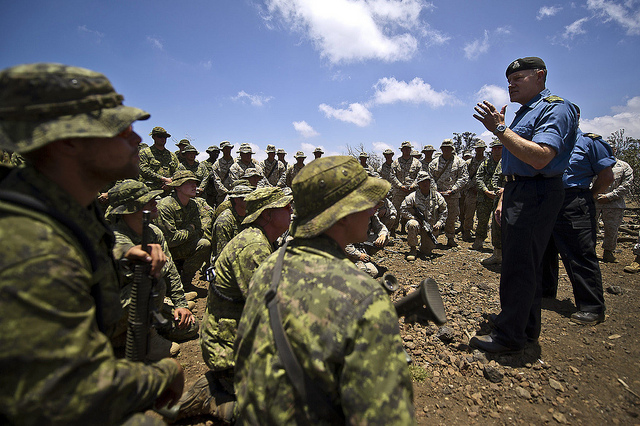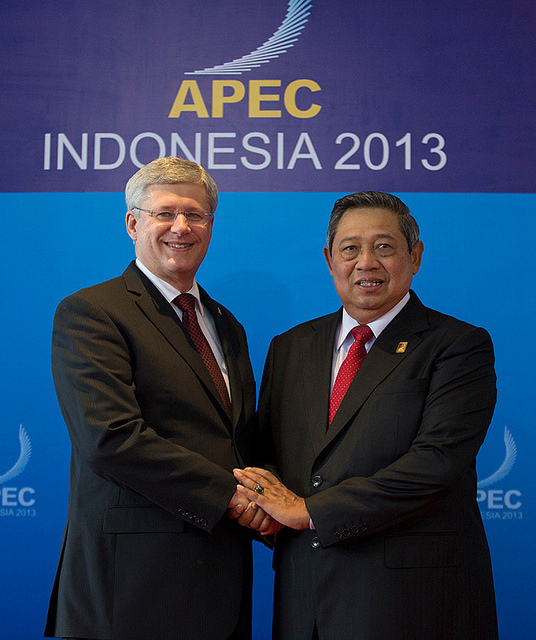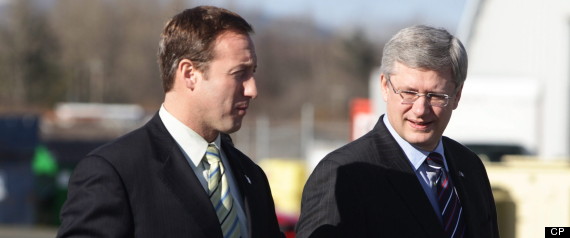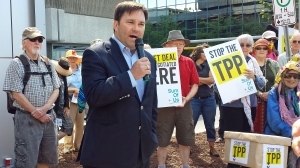With Remembrance Day 2014 having just passed, the Canadian public’s attention has shifted once again—however temporarily—towards issues facing Canada’s soldiers and veterans. This puts crucial military issues like post-traumatic stress disorder (PTSD), mental health, and suicide into greater focus.
In particular, recent events have helped put military suicides in the spotlight, with a tragic spate of ten suicides occurring from November 2013 to February 2014. It was also reported in September that, between 2004 and 2014, Canada lost more soldiers to suicide (160) than to combat deaths (138).
The Canadian Armed Forces (CAF) has tried to convey that the military establishment is dedicating more resources to this problem while simultaneously attempting to downplay the scale of the issue. An oft-cited report commissioned by the military was released in September and claims that suicide rates among military personnel are not statistically different from those of the general population in Canada. Moreover, the report states that “no consistent relationship has  been established between deployment and the risk of suicide in the CAF.”
been established between deployment and the risk of suicide in the CAF.”
But as part of its commitment to address the problem of suicide, the Defence Department has raised its mental health budget by $11 million per year to $50 million, with Defence Minister Rob Nicholson lamenting that “one death is too many.” The military operates 29 mental health clinics across Canada, aiming to assist Canadian soldiers.
Yet in spite of these efforts, recent budget cuts have seen two PTSD care centres in Valcartier, Quebec and Brandon, Manitoba closed. For military personnel struggling with mental illness, the longer drives to isolated locations for treatment can lead to disastrous results, including suicide.
Recently, renowned ‘suicidologist’ Antoon Leenaars has stated that military suicides in Canada have reached “epidemic proportions.” Leenaars, who has consulted on suicide prevention strategies with institutions around the world, rejected the Canadian military’s “whitewashing” of the suicide issue. He claims, “The Canadian military has done no credible, peer-reviewed research into suicide,” and he insists that such thorough studies by “people who have been in the field” are necessary to truly understand the problem. While suicide statistics are often inaccurate, Leenaars points out, they generally “lowball” the true numbers.
But while Leenaars rejected the military’s account of the suicide problem and its allegedly inadequate research in the area, there have been other studies. One such report by Statistics Canada followed 188,161 people who had enrolled in the Canadian Forces after January 1, 1972 until December 31, 2006. On the surface, the report seemed to reflect the CAF’s findings. For both males and females of all ages, there was no difference in suicide rate from the civilian population.
However, a closer look at the results indicates cause for concern. For males in the CAF, the risk of suicide is 1.5x higher than in the general public. For men aged 16-44, the risk was much greater, and for women aged 40-44, those in the CAF were 2.5x as likely to take their own lives as their civilian cohorts. Of all the men in the study who had died, 26.6% committed suicide; 14% of the women who had died did the same.
The same study also found that veterans’ suicide rates were 45% higher than those of civilians and actively serving military personnel. This highlights another troublesome aspect of the CAF’s recording of military suicides: retired veterans are not counted. The Armed Forces considers veterans as civilians, and as such does not count or track their suicides in any way.
As the attention of many Canadians is drawn this month towards issues affecting veterans and soldiers, it is important that the Canadian military use all the tools at its disposal to understand and address the pervasive and disturbing issue of military suicide. Countless soldiers and veterans, and their families, have attempted to draw attention to mental health and the difficult transition soldiers face in adjusting to civilian life. While the Canadian Defence establishment has committed financial and other resources to addressing military suicides, it is important that a fuller commitment be made to understanding the issue, and that the problem not be downplayed. Canada has a responsibility to its soldiers and veterans who may be silently suffering. The least we can do is listen.




